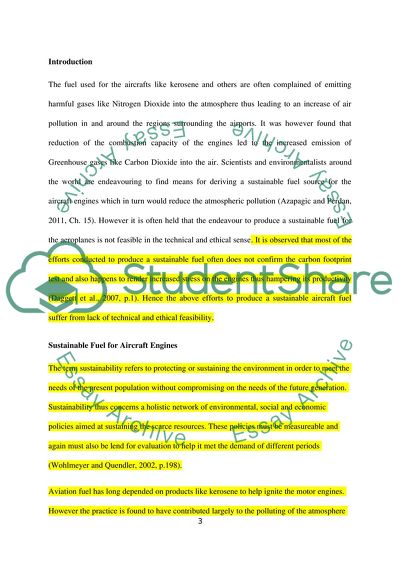Cite this document
(Technical and Ethical Feasibility of Efforts in Production of Sustainable Aviation Fuel Coursework Example | Topics and Well Written Essays - 2000 words - 1, n.d.)
Technical and Ethical Feasibility of Efforts in Production of Sustainable Aviation Fuel Coursework Example | Topics and Well Written Essays - 2000 words - 1. https://studentshare.org/environmental-studies/1758124-sustainable-aviation
Technical and Ethical Feasibility of Efforts in Production of Sustainable Aviation Fuel Coursework Example | Topics and Well Written Essays - 2000 words - 1. https://studentshare.org/environmental-studies/1758124-sustainable-aviation
(Technical and Ethical Feasibility of Efforts in Production of Sustainable Aviation Fuel Coursework Example | Topics and Well Written Essays - 2000 Words - 1)
Technical and Ethical Feasibility of Efforts in Production of Sustainable Aviation Fuel Coursework Example | Topics and Well Written Essays - 2000 Words - 1. https://studentshare.org/environmental-studies/1758124-sustainable-aviation.
Technical and Ethical Feasibility of Efforts in Production of Sustainable Aviation Fuel Coursework Example | Topics and Well Written Essays - 2000 Words - 1. https://studentshare.org/environmental-studies/1758124-sustainable-aviation.
“Technical and Ethical Feasibility of Efforts in Production of Sustainable Aviation Fuel Coursework Example | Topics and Well Written Essays - 2000 Words - 1”. https://studentshare.org/environmental-studies/1758124-sustainable-aviation.


